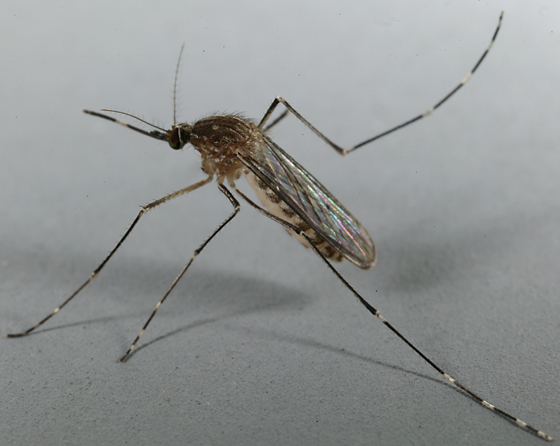
More rain has eased Nebraska's drought woes, but it also led to an increase in the state's mosquito population.
There are more mosquitoes out this year than there were at the same time last year, said Barbara Ogg, a University of Nebraska-Lincoln Extension educator who specializes in entomology and pest management.
This is in part due to the recent rainy weather.
"Last year we had a lot of rainy weather in the spring and then it dried up," Ogg said. "It's going to be a problem in areas where we've seen abundant rain."
Ogg said the best way to avoid getting bitten is to avoid being outside at times when mosquitoes are most active, such as dawn and dusk.
"If you need to do yard work, do it in the day, when most mosquitoes aren't very active, Ogg said.
Mosquitoes breed in containers that hold water so making sure there is no standing water in your yard can help reduce mosquitoes in your neighborhood.
When people must be outside when mosquitoes are active, there are several insect repellents that are effective.
"DEET repellents are still probably the best and prevent bites longer than other types," Ogg said.
Other effective repellents available include the chemical picaridin and oil of lemon eucalyptus. All of these repellents are recommended by the CDC.
In Nebraska, Culex tarsalis, sometime called the western encephalitis mosquito, is the mosquito species that is most likely to harbor the West Nile virus. It feeds primarily on nesting birds early in the spring and early summer and then switches to feeding on humans and other animals after the birds leave their nests.
"By mid-July, nesting is over and the C. tarsalis mosquitoes begin feeding on people and other animals," Ogg said. Most incidents of West Nile encephalitis occur from mid-July until frost.
Only females feed on blood. Males feed on the nectar of flowered plants.
Although C. tarsalis is found in eastern Nebraska, it is more abundant in central and western Nebraska. This mosquito tends to be more common in rural areas, Ogg said. Last year during the drought, C. tarsalis bred in irrigation ditches and there were cases of West Nile encephalitis in Nebraska.
The mosquito also poses a threat to horses, although there is a vaccination for horses against West Nile.
There is no vaccine for humans, however, so people should be cautious about getting bitten. Young, healthy individuals rarely have severe reaction to the virus. At most, they may have a headache and minor, flu-like symptoms. Most at risk are people with auto-immune disorders and people over age 65, Ogg said.
- See more at: http://ianrnews.unl.edu/parts-state-see-increase-mosquito-population#sthash.iDwyQN0K.dpuf